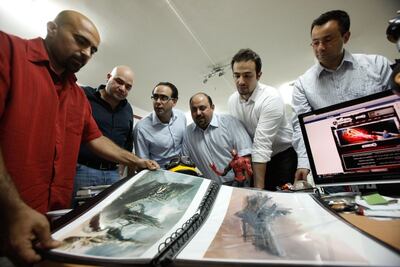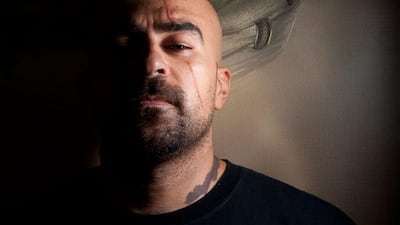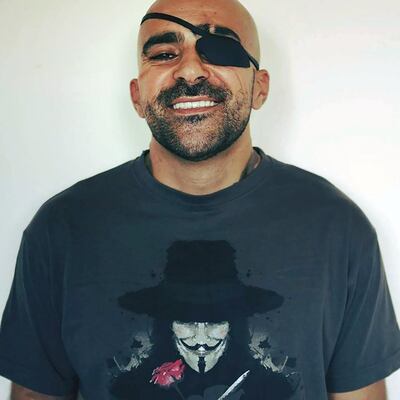Jordanian comic book author Suleiman Bakhit, whose work created superheroes inspired by ancient Arabic mythology to counter extremist ideologies, has died following a long battle with cancer.
Bakhit, who was known for his dedication to promoting heroism through comic book characters as an antidote to extremism, passed away while undergoing medical treatment in Spain.
Son of former Jordanian prime minister Marouf al-Bakhit, the social entrepreneur managed to carve out his own path to success. Despite having no experience in the comic world and never considering himself to be artistically gifted, Bakhit taught himself how to draw and to tell stories in the hope of bridging cultural divides while also confronting discrimination faced by women and girls.
In 2006, with the help of a team of writers and artists, he launched comic book company Aranim Media Factory – a name derived from the combination of ‘Arab’ and ‘anime’.
During a speech at the 2014 Oslo Freedom Forum, Bakhit explained that he felt compelled to act after being the target of racially motivated violence while studying in the US following the 9/11 attacks. He began visiting local schools to spread the message that "not all Middle Easterners are terrorists, and Al Qaeda is like the KKK".
“A six-year-old girl stands up and she says ‘Is there an Arabic Barbie?’ and the boys go crazy. ‘Is there an Arab superman, an Arab Batman?', they asked. And I was like, ‘no there isn’t’,” he told the audience. “I couldn’t get the idea out of my head, so I started teaching myself how to draw, started working with other people creating stories and characters, to try and answer that question.”
It was this moment that sparked two years of research into Middle Eastern mythologies and Arab culture for Bakhit, eventually leading to him quitting his Masters programme in human resource development at the University of Minnesota, and returning to Jordan to launch his comic business. His aim was to tackle what he described as “the biggest threat today – terrorism disguised as heroism”, by creating stories and heroes that promote tolerance. In 2010, he sold 1.2 million comics.
“Narratives give us a compelling sense of purpose, it drives our actions, it drives our future actions,” he said during his forum address. “Similarly, with extremist groups it tells us a lot about their members; where they come from, where they’re heading what their goals, objectives [are], even tactics.”
Bakhit committed himself to understanding extremism by working with children both in Jordan’s capital Amman and in Syrian refugee camps. Through these conversations he was able to learn about the perceptions some of these young people had of themselves and the West – most notably the idea fed by extremism propaganda that the West is at war with Islam.
When Bakhit asked some of the children who they considered to be their heroes, they named Osama Bin Laden and Jordanian jihadist Abu Musab al-Zarqawi, citing reasons such as the fact “they defend us against the West because the West is out there to kill us”. Bahkit described this as “the terrorist narrative and Propaganda 101”.
"Isis portrays terrorism as a heroic journey," he said during an interview with Al-sharq Al-awsat newspaper. "The most dangerous thing facing the Middle East is the terrorism that is hidden behind the mask of heroism."
Bakhit’s response was to provide the children with comic books for free and when he met them again a few months later, he found extremist leaders had been knocked from a pedestal in the eyes of the children and replaced instead by comic book characters.
Bakhit also created cartoons aimed at empowering women including Section 9 – a story based on the active, all-female counter-terrorism unit in Jordan. It was a deliberate attempt to challenge misogynistic attitudes faced by many women around the globe.
He also created computer games. In a 2014 interview, he identified one of his favourite characters as Element Zero – featured in one of his first social games – describing him as a special agent who fights local terrorism and as an Arabic spin on the likes of Jason Bourne or fictional counterterrorism agent in 24, Jack Bauer.
His endeavour certainly led to a few challenges along the way. After a few thousand comic books were published and his message began to gain traction, he was attacked with a razor blade by extremists in Jordan, leaving him with a scar down the left side of his face. His belief was that it was a sign he was doing something right.

Holding up a comic book at the end of his Oslo Freedom Forum speech, he referred to it as “a weapon that does not kill”.
“A weapon of hope, a weapon of inspiration, it’s a weapon of heroes.”
Heartfelt messages have been posted across social media this week, describing Bakhit himself as a superhero. The Human Rights Foundation tweeted: "Today, the @HRF/@OsloFF community mourns the passing of Suleiman Bakhit, an extraordinary artist, poet, and activist. He created comics to counter extremism. But really, Suleiman was a superhero. Rest in Peace."


